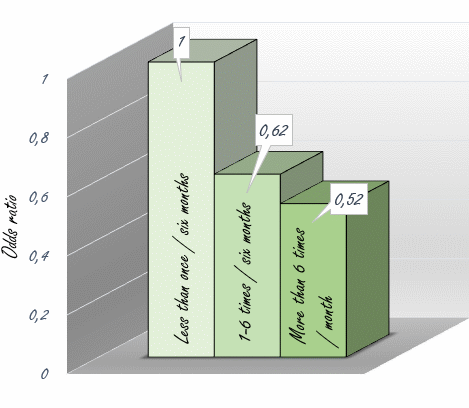|
Do you cook curry often? It helps keep your brain cells in good condition
We've lost track of how often we've written about studies that demonstrate the health-promoting effects of curcumin. Animal studies have shown that curcumin protects the brain against the effects of aging. But the doses used in those - and all other studies - are much higher than what you consume by cooking with curry powder. So does that mean that only people who use curcumin supplements can benefit from the miraculous properties of this substance? We found an epidemiological study that concludes this is not the case.
Curry
Curry is a mixture of herbs and spices, and the composition differs from country to country. Of course it nearly always contains turmeric, the most important source of curcumin in our diet, but usually also ginger, cardamom, coriander, clove, cumin and black pepper.
Study
The researchers, who worked at the National University of Singapore, studied 1010 Asian people aged between 60 and 93. They asked how often the participants ate curry and got them to complete questionnaires to build up a detailed picture of their lifestyle.
In addition, the researchers used the Mini-Mental State Examination questionnaire to assess the participants' cognitive capacities. If you score 23 or lower, doctors start to think you've not got all your mental marbles.
Results
The participants who ate curry regularly scored 23 or less half as often as the participants who did not eat curry. The researchers corrected their data for all other lifestyle factors that are known to have an impact on brain health.


Conclusion
"We report tentative evidence of an observed association between curry consumption and better cognitive function in elderly Asian subjects," wrote the researchers.
"More firm evidence may come from further investigations of curry consumption in relation to Alzheimer's disease in longitudinally followed up cohorts of elderly persons and from investigations that further characterize the specific neurocognitive functions that are enhanced by turmeric."articipants. You need to bear in mind that the insulin function in the younger participants was still intact and that their HOMA-IR was already low.
Source:
Am J Epidemiol. 2006 Nov 1;164(9):898-906.
More:
Improve your learning with turmeric 26.08.2014
Curcumin just as effective antidepressant as Prozac, study concludes 26.08.2013
Archives:
Alzheimer's & Dementia
Turmeric & Curcumin
|






